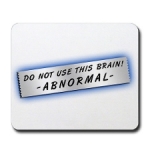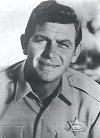Resting uneasy: Heavy marketing of anti-snoring device worries some
Tuesday, August 05, 2008
By Steve Twedt, Pittsburgh Post-Gazette
Daniel Marsula/Post-GazetteA California firm's aggressive marketing of a medical device to treat snoring is making some sleep specialists uneasy.
In cable TV television ads, including high-profile ones during broadcasts of the Stanley Cup and NBA finals, the Pure Sleep Co. has been advertising its PureSleep intraoral device as a way to stop snoring, all for two payments of $29.95 plus $7.95 shipping and handling.
And you can order the device without seeing a physician or a dentist. You must, however, answer a series of 19 questions on the company's Web site, such as whether you have chronic asthma, loose teeth or a sore jaw.
"If you fail [to give appropriate answers], you will not get it," said Noel Lindsay, a Pittsburgh native and Carnegie Mellon University graduate who is chairman and CEO of Sleep Science Partners, the parent company of Pure Sleep.
Because the U.S. Food and Drug Administration has not approved any over-the-counter medical device to treat snoring, a prescription is required for PureSleep.
That has dental sleep specialists wondering -- how do people get a prescription without seeing a doctor or dentist?
"The entire reason that the FDA denied [over-the-counter] access to [these] devices was not to limit access, but to make sure patients were being cared for by a dentist who would help minimize the side effects," said Dr. B. Gail Demko, who is chairing a panel for the American Academy of Dental Sleep Medicine looking into anti-snoring devices such as PureSleep.
Dr. Robert Rogers, whose Bloomfield practice exclusively treats patients diagnosed with sleep disorder breathing problems, also pointed out that "it is well known in the medical profession that paper surveys are very limited and often inaccurate in ruling out diseases."
People may not know they have an underlying sleep disorder, he said, so they can't be expected to provide reliable answers to the questionnaire.
Mr. Lindsay said Dr. Douglas Fenton, the California dentist who invented PureSleep, "is the prescribing doctor generally." Asked if Dr. Fenton confers with doctors in the patient's home state, or if Pure Sleep follows up with patients, Mr. Lindsay declined to give specifics.
"I don't want to tell potential competitors how we do what we do." He also declined to provide sales figures for PureSleep, which came on the market in November.
"We believe we have a set of processes that are based on gathering the necessary information and crosschecking them in a way that is really powerful and clinically valid," he said.
Mr. Lindsay estimated that "probably more than 75 percent" of those answering the questions will be able to order PureSleep, but added that "we're extremely careful to make sure that the product is not available to anyone in any way unless they answer the questions in exactly the way they need to answer them."
One worry, say Drs. Demko and Rogers, is that snoring may be a sign the patient has a more serious medical condition, such as sleep apnea, that would go undiagnosed.
Long term, that can result in chronic sleep deprivation, with serious implications for a person's heart and general health. One National Center on Sleep Disorders Research study found those with severe apnea have significantly higher death rates.
Mr. Lindsay calls that "a fallacious argument. That argument would prevent you from selling aspirin to someone who has a headache because they might really have a brain tumor."
He also pointed out that PureSleep makes no claims that it treats sleep apnea; that it is simply a device to stop snoring. Dentists already prescribe these anti-snoring devices, he said. The primary difference with PureSleep is that a person does not have to sit in a dentist's chair to get one.
"We are trying to make a health-care service more accessible and affordable."
The PureSleep device works by moving the sleeper's lower jaw slightly forward, opening the airway.
It is made from two kinds of plastic that you boil then mold by sticking it in your mouth and biting down. The upper and lower pieces fit together in one of three possible positions.
But oral devices come with some risk, including a painful jaw and a distorted bite. Those usually pass within a few hours, but longer-term risks include jaw displacement, or loosening and movement of teeth. One study found that among those who have used an appliance for more than seven years, 85 percent had "significant orthodontic side effects."
"A dentist needs to fit it and follow the patient closely over time" to look for possible problems, said Dr. Rogers. "In my experience, the non-customized appliances are typically bulky and ill fitting, and not adequately adjustable."
Mr. Lindsay willingly concedes that custom-fitted oral appliances are better -- but they are also more expensive and require office visits.
A custom-fitted oral device can cost a couple of thousand dollars, though the cost to the patient may be a few hundred dollars if covered by insurance. Faced with that, people may decide a device such as PureSleep is worth a try.
On his Web site, Dr. Fenton writes that PureSleep "has been 80-90% effective based on my experience and that of fellow physicians and dentists" over the past decade.
Dr. Demko is not convinced. "To have no dentist in the loop allows patients to get into real dental problems that can lead to the loss of teeth or very expensive dentistry in the future."
Snoring affects an estimated 35 to 40 percent of adults, and it can be a simple annoyance or a symptom of a serious sleep disorder. One common treatment prescribed by physicians is a pressurized air mask that emits a continuous flow of air to keep the airway open.
But the masks can be cumbersome and noisy, and an alternative approach -- oral devices resembling athletic mouth guards -- has gained popularity the last 15 years.
With a customized device, a dentist makes the mold and supervises its fitting. With anti-snoring devices such as PureSleep, the patient makes the mold at home.
"What we find is that if people have a hard time, it's either in the fitting process or they find it awkward to have something in their mouth when they're sleeping," said Mr. Lindsay.
But he also insists that "our product really works for a large part of the population."
Whatever its market share, though, PureSleep may find it difficult to convince dental sleep specialists that it's a winner.
Said Dr. Rogers: "'Boil-and-bite' appliances have been around for at least 20 years and, from time to time, manufacturers attempt to sidestep proper medical protocol in an effort to maximize sales.
The consensus of our profession is that the patient is placed at great medical and dental risk when this occurs."Steve Twedt can be reached at
stwedt@post-gazette.com or 412-263-1963.
First published on August 5, 2008 at 12:00 am












